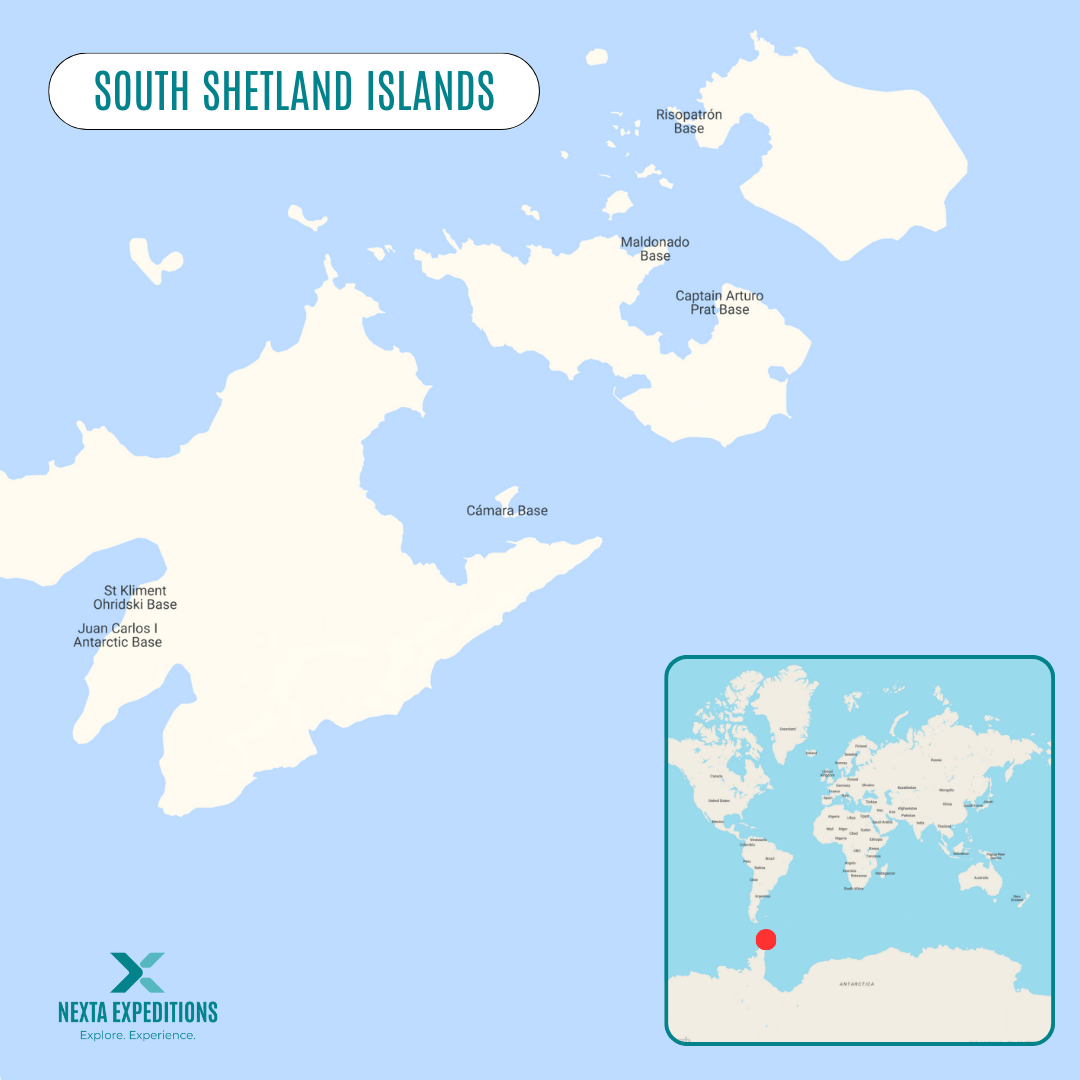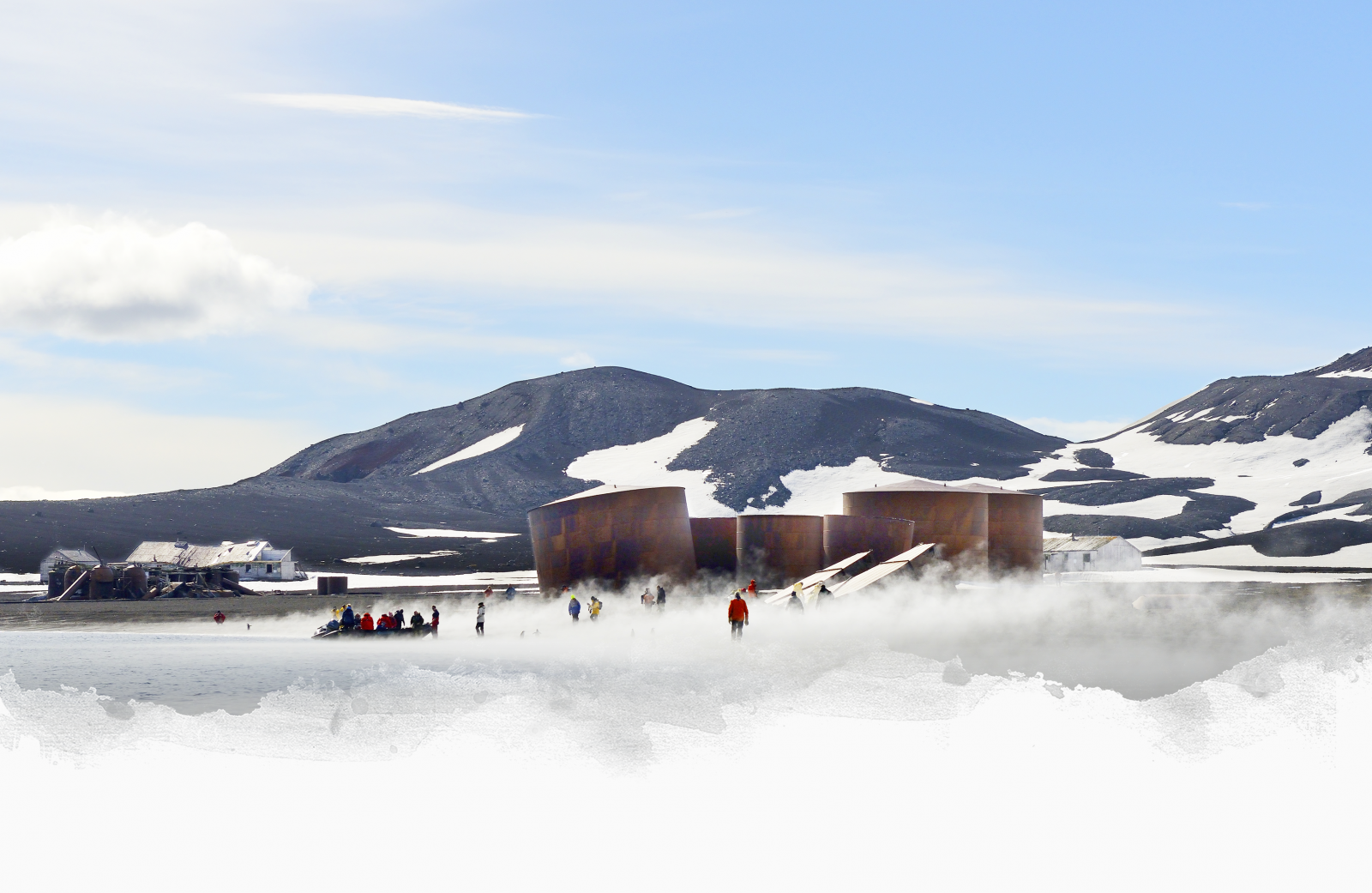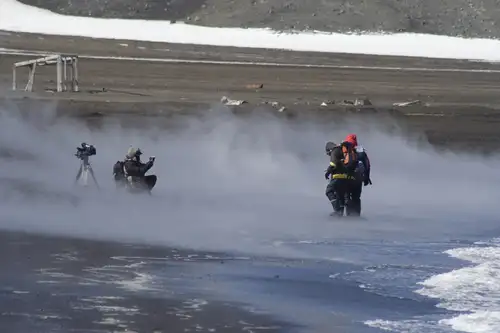The South Shetland Islands are a fascinating and rugged archipelago located near the Antarctic Peninsula. Consisting of 11 major islands and numerous smaller ones, this remote chain is known for its stunning, mountainous landscapes and significant glaciation, with more than 80% of the islands covered in ice. The islands' volcanic origins add an extra layer of intrigue to their already dramatic scenery.
These islands have a rich history of exploration and adventure. Although they might have been sighted by earlier seafarers, the first recorded sighting of the South Shetland Islands was by William Smith, a British sailor whose ship was blown off course while rounding Cape Horn in 1819. Smith's unexpected discovery opened the door to a new era of exploration in this remote part of the world.
Following Smith’s sighting, the South Shetland Islands quickly became a hub for seal hunters. The lure of Fur Seals, prized for their pelts, brought hunters from around the world to these icy shores. The sealers braved harsh conditions and treacherous seas in their quest for the valuable seals, leaving an indelible mark on the islands' history. Today, you can still sense the echoes of those early expeditions as you explore the rugged coastlines and icy waters.
The wildlife of the South Shetland Islands is as impressive as the landscape itself. Despite the harsh conditions, the islands are home to a variety of species that thrive in this extreme environment. Penguins are among the most notable residents, with large colonies of Chinstrap, Gentoo, and Adélie Penguins making their home on the islands. Watching these charismatic birds waddle and dive is a highlight of any visit to the South Shetlands.
In addition to penguins, the islands are frequented by various seal species, including Elephant Seals, Leopard Seals, and, of course, Fur Seals. These marine mammals can often be seen lounging on the beaches or swimming in the frigid waters, providing endless opportunities for wildlife observation and photography. The surrounding seas are also rich in marine life, with whales and seabirds adding to the area's biodiversity.
Exploring the South Shetland Islands offers a unique blend of adventure and discovery. The rugged terrain and extensive glaciation create a challenging but rewarding environment for hikers and climbers. The islands' volcanic origin is evident in the dramatic landscapes, with some areas featuring hot springs and geothermal activity. Deception Island, one of the South Shetlands, is particularly famous for its flooded caldera and active volcano, offering a rare opportunity to explore a geothermal wonderland in the heart of Antarctica.
The islands' remote location and harsh conditions mean that they remain largely untouched by human development, preserving their pristine beauty and ecological integrity. This makes the South Shetland Islands a paradise for scientists and researchers studying climate change, glaciology, and marine biology. The research stations scattered across the islands are vital hubs for scientific inquiry, contributing valuable data to our understanding of the polar regions.
For those looking to experience the South Shetland Islands firsthand, expeditions typically depart from South America, with many tours including stops at both the islands and the nearby Antarctic Peninsula. These journeys offer a once-in-a-lifetime opportunity to explore one of the most remote and untouched places on Earth. Whether you’re kayaking among icebergs, trekking across glaciers, or simply taking in the breathtaking scenery from the deck of a ship, the South Shetland Islands promise an unforgettable adventure.
The islands' rich history, diverse wildlife, and stunning landscapes make them a must-visit destination for anyone interested in the natural world and the history of exploration. The South Shetland Islands are a place where you can truly disconnect from the modern world and immerse yourself in the raw beauty of the polar wilderness. It’s a destination that challenges you, inspires you, and leaves you with memories that will last a lifetime.








